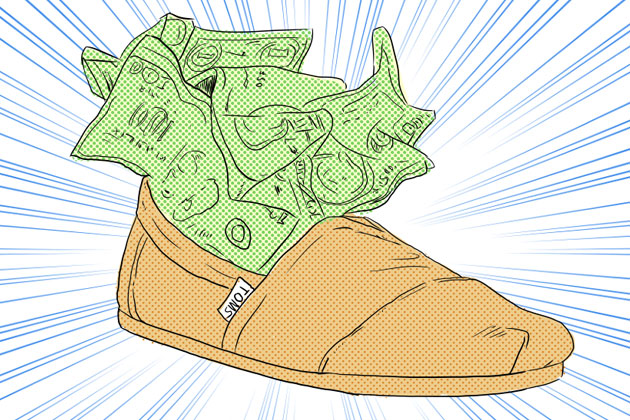Breaking Business
Digital image. Wired.
While Vince Gilligan’s ground-breaking drama Breaking Bad explores a variety of societal themes, including moral consequences and the role of family, it also illustrates several foundational business principles that apply regardless of industry.
The success of Walter White’s empire hinges on his ability to produce a consistently superior – 99.1% pure – product, yielding a competitive advantage over his rivals. The quality of his product substantially increases market demand, while the purity allows him to minimize waste, decreasing costs and hence increasing margins. In addition, he is “able to differentiate his [brand] in the marketplace;” (Gurnett) his product easily identifiable by the trademark blue colour. To distribute his product, Mr. White enters into several business partnerships, utilizing his partners’ established supply networks as channels to facilitate the sale of his products. Well positioned for success, Walter’s “company” encounters exponential growth.
However, as Walt experiences growing success, he allows the flaws within his character, chiefly his hubris, to negatively influence his business decisions and relationships. The vengeful ambition – borne of a missed opportunity – that fueled his success, eventually initiates his demise. As was the case with Enron, as well as countless others, Walt’s moral decline began with small ethical violations, before culminating in serious crimes, in his case the murder of several inmates and the betrayal of his partner. Again paralleling the Enron scandal, Walter’s pride induces a belief in his own invincibility (Schumpeter); that his actions will bear no consequences. While his character is eventually redeemed, he cannot escape the consequences of his past, and he pays the ultimate price for his transgressions.
Schumpeter. “The “Breaking Bad” School.” The Economist. The Economist Newspaper, 28 Sept. 2013. Web. 19 Sept. 2014. <http://www.economist.com/news/business/21586801-best-show-television-also-first-rate-primer-business-breaking-bad-school>
Gurnett, Kelly. “5 Career Lessons From ‘Breaking Bad'” Business Insider. Business Insider, Inc, 22 Sept. 2013. Web. 19 Sept. 2014. <http://www.businessinsider.com/career-lessons-from-breaking-bad-2013-9>
Cuffin, Eddie. “The 10 Lessons ‘Breaking Bad’ Taught Us About Running A Business.” Elite Daily. N.p., 30 Sept. 2013. Web. 19 Sept. 2014. <http://elitedaily.com/money/entrepreneurship/the-10-business-lessons-we-learned-from-breaking-bad/>


